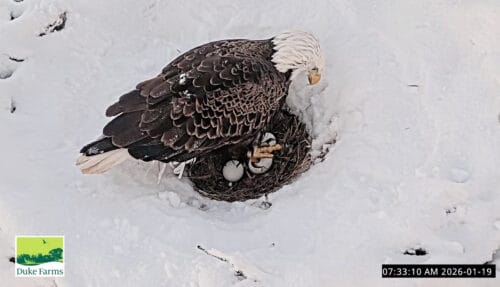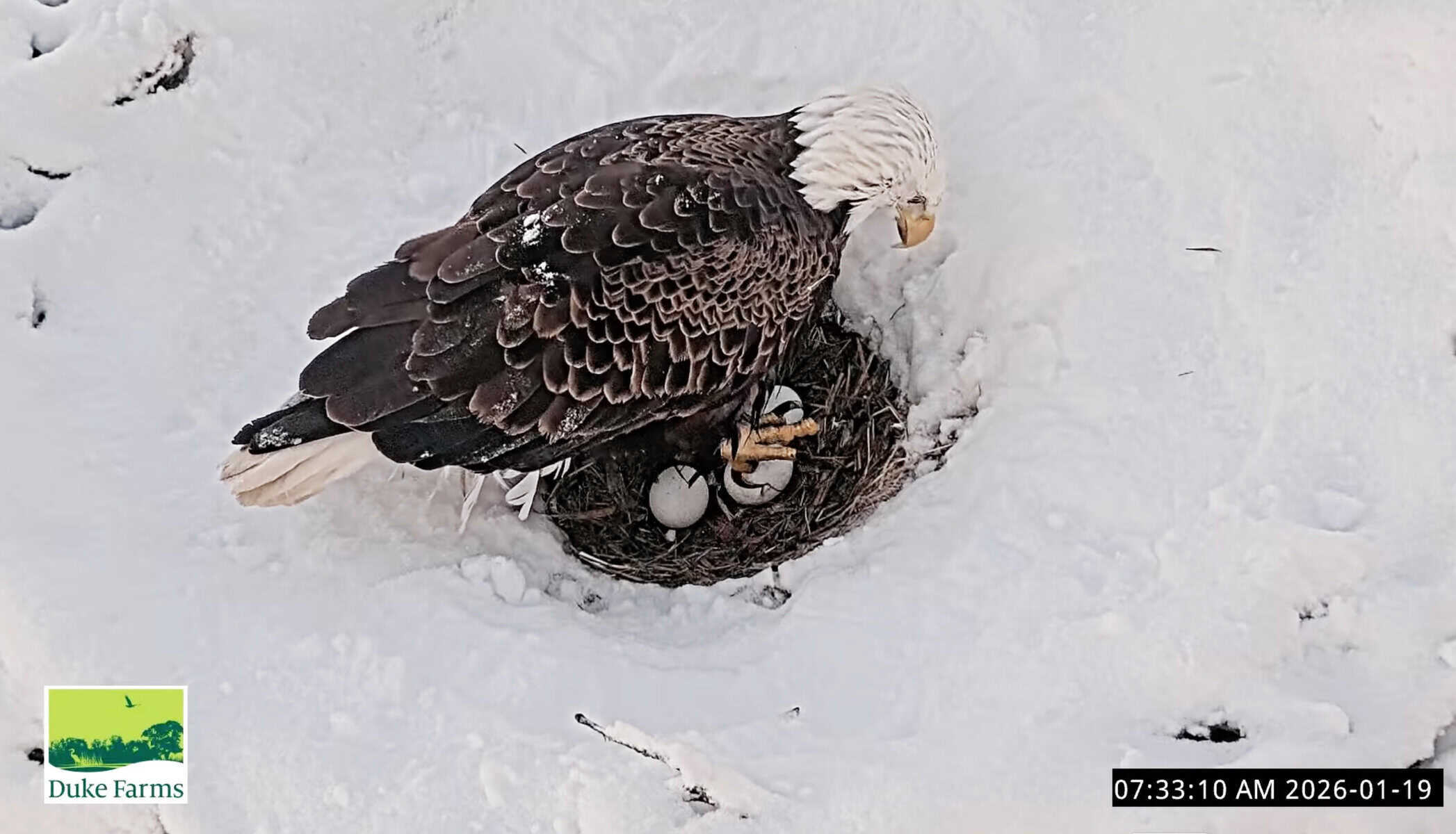Up in the Air
Words reprinted from a 2010 issue of The Grapevine.
 The apples and most other fall crops have all been harvested by now. Apple picking can be a fun (grounded) family activity, but for the most serious picking, the farmer needs a lift to the top of the trees. On the family homestead, that lift was provided for many years by a cherry picker-type vehicle called a Girette. I’m guessing the brand name derived from the fact that the lifting arm mimics a giraffe’s neck. Although the Girette has long since been replaced by another less descriptive brand of “pruning tower,” the name girette stuck and has always been a household name in my family. Yep, might as well be lower-case, too.
The apples and most other fall crops have all been harvested by now. Apple picking can be a fun (grounded) family activity, but for the most serious picking, the farmer needs a lift to the top of the trees. On the family homestead, that lift was provided for many years by a cherry picker-type vehicle called a Girette. I’m guessing the brand name derived from the fact that the lifting arm mimics a giraffe’s neck. Although the Girette has long since been replaced by another less descriptive brand of “pruning tower,” the name girette stuck and has always been a household name in my family. Yep, might as well be lower-case, too.
A Girette, or girette, has three sets of wheels, one in front and two sets of double-wheels at the back of the tripod to give the vehicle stability and to move it forward and back. You can steer the front wheel only. The other controls—all of them on the footbed of the lift—allow the driver to go up and down and side to side. When you combine steering the front wheel with moving backwards and shifting to one side, a seasoned operator can wedge himself into the crook of an apple tree with skill that looks more like magical powers.
 Up until a couple of years ago, my father had been the main operator of the girette. Even through this season, he picked nearly all of the higher apples on the farm where he was born 90 winters ago. It was only three or four years ago that I had my first shot at picking from the girette, due to some illness that kept him grounded for part of the season. Once I was aloft, I realized why he has always been so possessive of the contraption.
Up until a couple of years ago, my father had been the main operator of the girette. Even through this season, he picked nearly all of the higher apples on the farm where he was born 90 winters ago. It was only three or four years ago that I had my first shot at picking from the girette, due to some illness that kept him grounded for part of the season. Once I was aloft, I realized why he has always been so possessive of the contraption.
You’re only some 30 feet off the ground, so you wouldn’t think it could be so…well, uplifting, but it’s a whole different world up there. Just look around and you realize this expanse of land was named Pleasant Valley Farm for good reason. Beyond the neat rows of orchard trees, there’s the wide open fields, all fallow now with only a stubble of remaining crops, interrupted by windrows of evergreens and the farmhouse, yard, barn, garages, and tractor sheds.
 Over on the far hill is the next closest house, with neat rows of Christmas trees—green dots from here—marching up to it. As a backdrop to it all, the forest is aflame with autumn hues of orange, yellow, and red.
Over on the far hill is the next closest house, with neat rows of Christmas trees—green dots from here—marching up to it. As a backdrop to it all, the forest is aflame with autumn hues of orange, yellow, and red.
But most noticeable of all is the blue sky wrapping around you. It makes you stop, for it is a breathtaking sight…and you, in the middle of it. You’re small, in a wide-angle lens sort of way. Yet, you are looming over the scene, the largest and closest thing in a big-picture panorama.
The air wasn’t this cool on the ground, was it? If so, you would have worn a heavier jacket than a hoodie sweatshirt. No, the air is definitely cool and crisp up here amongst the Winesaps and Granny Smiths. Apple season starts out being warm and humid in late August when the Macintosh and Sungolds are plucked from the trees, but harvesting the fall crop takes you right through to the chill of October and early November, from bees buzzing around you to frosty fingers if you start too early in the morning.
 And there’s something else about being up in the air: It grounds you in a way. You get to leave all your cares behind, they are like dust bunnies settling somewhere below you as you are lifted to a higher plane. You truly get to rise above all the clutter to where the air seems purer and life is simpler. The focus is on the task at hand, and on God’s big sky and wide world that encircles you.
And there’s something else about being up in the air: It grounds you in a way. You get to leave all your cares behind, they are like dust bunnies settling somewhere below you as you are lifted to a higher plane. You truly get to rise above all the clutter to where the air seems purer and life is simpler. The focus is on the task at hand, and on God’s big sky and wide world that encircles you.
I’m certain my father sees it differently up in the air, but with no less awe. His skies were not always as populated with airplanes, for he was just seven years old when Charles Lindbergh became the first to fly nonstop from New York to Paris. Flight was the frontier of my dad’s wonder years and Lucky Lindy was his hero, just as the Apollo moon landing was the great scientific event of mine. You could say we each have our head in the clouds. And we both really enjoy being up in the air, overlooking the pleasant valley.










